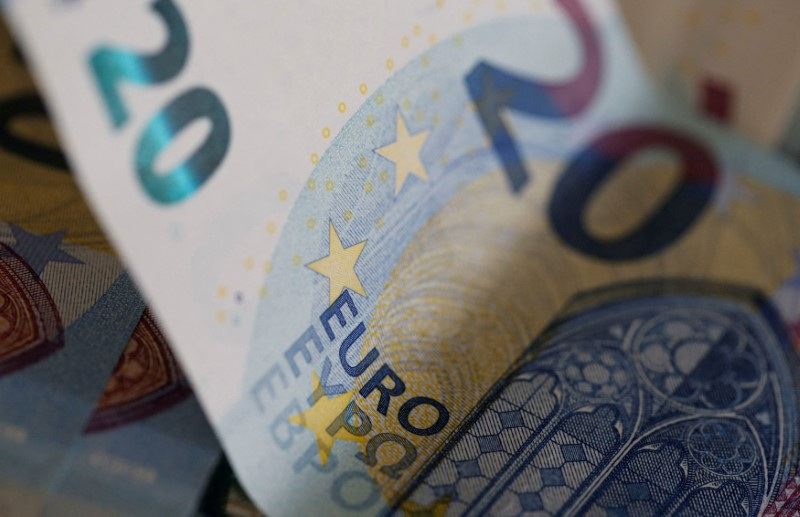Investing.com -- The euro racked up gains against the dollar Wednesday, but faces a tricky path to further upside as European Central Bank members continue to lay out the carpet for a rate cut as soon as June.
EUR/USD rose 0.63% to $1.0837.
"It's become very difficult for the EUR to rally vs. the USD, and we still see the risk skew pointed to the downside for EUR/USD," Macquarie said in a Wednesday note, flagging recent remarks from ECB members signalling a June rate cut.
ECB governor Christine Lagarde opened the door to a June cut at the central bank's Mar. 7 meeting, hinting that should ongoing inflation data continue to point to slowing price pressures, the bank would be able to move into "the dialling back phase of our policy cycle and make policy less restrictive."
The most recent EU economic data suggest that the trend of slowing inflation seen earlier this year has persisted, with Euro area inflation slowing to 2.4% from 2.6% in March, the lowest level since the start of the Russia-Ukraine war in February 2022.
In sign that the data may have soften some of the more hawkish members of the governing council, Austrian policymaker Robert Holzman said Wednesday he didn't have a "objection to easing in June", though added that he would "like to see the data first."
The remarks come ahead of the ECB meeting on Apr. 11.
The inflation data in Europe is in sharp contrast to that of the U.S., where consumer inflation has surprised to the upside in January and February, though the Fed's preferred measure of inflation, the core consumption expenditure index, slowed to 2.8% in the 12 months through February from 2.9% a year earlier.
Still, this contrast in inflation fortunates between the EU and the U.S. allows the ECB to be more dovish in tone, as it has seen no Q1 inflation spike, Macquarie says, keeping the dollar strong against the euro.
This dollar strength, however, will be tested again as soon as next week, with the release of the March CPI inflation report due Apr. 10.
But Macquarie isn't convinced that U.S. inflation in March will again be high, as rent inflation, and "a decline in new car prices could help offset the upward pressure from supply-chain problems and higher fuel prices."
